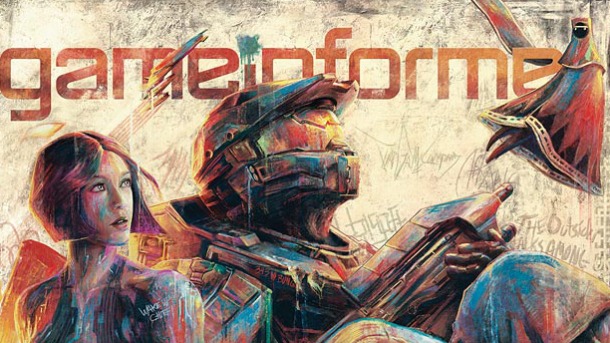This is the article I wrote to win Next Big Critic for Game Informer back in 2011. It’s very old but it started my journey into Games Journalism, so I feel it’s important and worthy of being here.
Rotten to the core
After watching recent E3 coverage and reading comments from other gamers, it couldn’t be more obvious, that in the language of the gamer ‘casual’ has become a dirty word.
In some ways, I can agree with this notion. Often when I start talking games with my peers I get those funny looks or that presumption that when I say ‘I play video games’ what I must mean is I might have Sing Star, or a Wii gathering dust. To hear ‘casual’ in reference to what kind of gamer I might be, I can’t deny there is a sting to it, especially when I have saved the princess, beaten the elite four, survived the flood, charged Dracula’s castle, travelled to Red Mountain, been champion of Albion, and held a piece of Eden. We pour large chunks of our lives into the experience, and it becomes a part of our identity. A whole culture that comes from the time we spend on games, and I’m proud to be a part of it.
What I just can’t seem to grasp is the attitude, which so many core gamers seem to have towards the ‘casual’ genre. Seemingly there exists a notion by core gamers that the industry owes them, that the release of a casual gaming product is either unworthy of attention or a sign of neglecting a more core project. In a year when AAA titles are constantly being released and there is never any want for something to play, the very idea that we aren’t getting paid our due is ludicrous. Whilst many of us had pledged our souls to Nintendo the first time we played Ocarina of Time, or to Microsoft when we slipped into the world of Halo, by no means did they do the same for us. They are giant companies, who know where to go to make money. Claiming to have a demand on the industry because you were there since the beginning and that they shouldn’t be making things for the new kids on the block, truly doesn’t make sense – especially when all this tasty casual game money, is helping to fund the amazing core titles we are seeing.
Gamers being upset when a motion control is being applied to a game that they are looking forward to, claiming that it will be ruined, is another part of this ‘anti-casual’ mentality. I have been looking forward to Bioshock Infinite since seeing the first teaser trailer, and when Ken Levine announced at Sony’s E3 that the game would have Move support, I could hear the crowd go silent in horror. Ken understands that motion controls are casual, not core. He even said that it would allow ‘casual’ gamers the chance to delve into the Bioshock world, but it also allows new ways for all gamers to interact with the environments. I am interested in trying out the Move controls, but am equally thankful that the option to go back to my normal controller is there. The use of Kinect for the gunsmith in Ghost Recon Future Soldier is another example of how motion controls can enhance the gaming experience for core gamers. Being able to pull apart and customize your gun with hand gestures and voice, would really lend to the experience of being a ‘Future Soldier’.
There is obviously more to the casual/core dynamic than motion controls, but in the wake of E3, it is along this front-line that many of the shots are currently being fired. It’s true that motion controls are too often just a gimmick, shoehorned into experiences traditionally thought of as ‘casual’, but core gamers should be smart enough to see these for what they are and move on. Just as we wouldn’t hate on a child for enjoying children’s tv shows we shouldn’t deride the casuals for enjoying the games they like, the way they want to. After all, they are no doubt new to the medium. Perhaps as motion technology evolves and is seamlessly implemented into core games, and core games into social network sites, we’ll find that respect, and get over ourselves.


